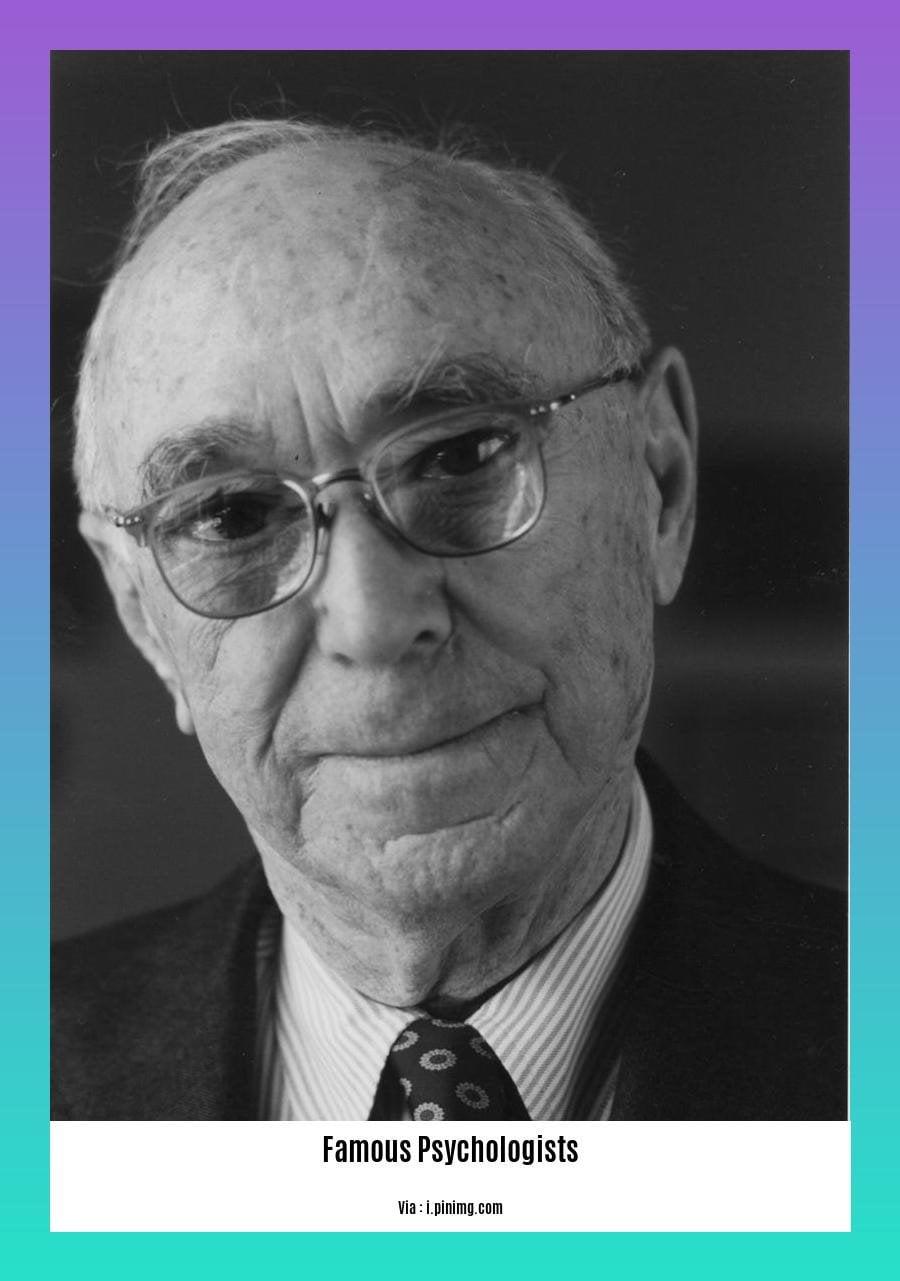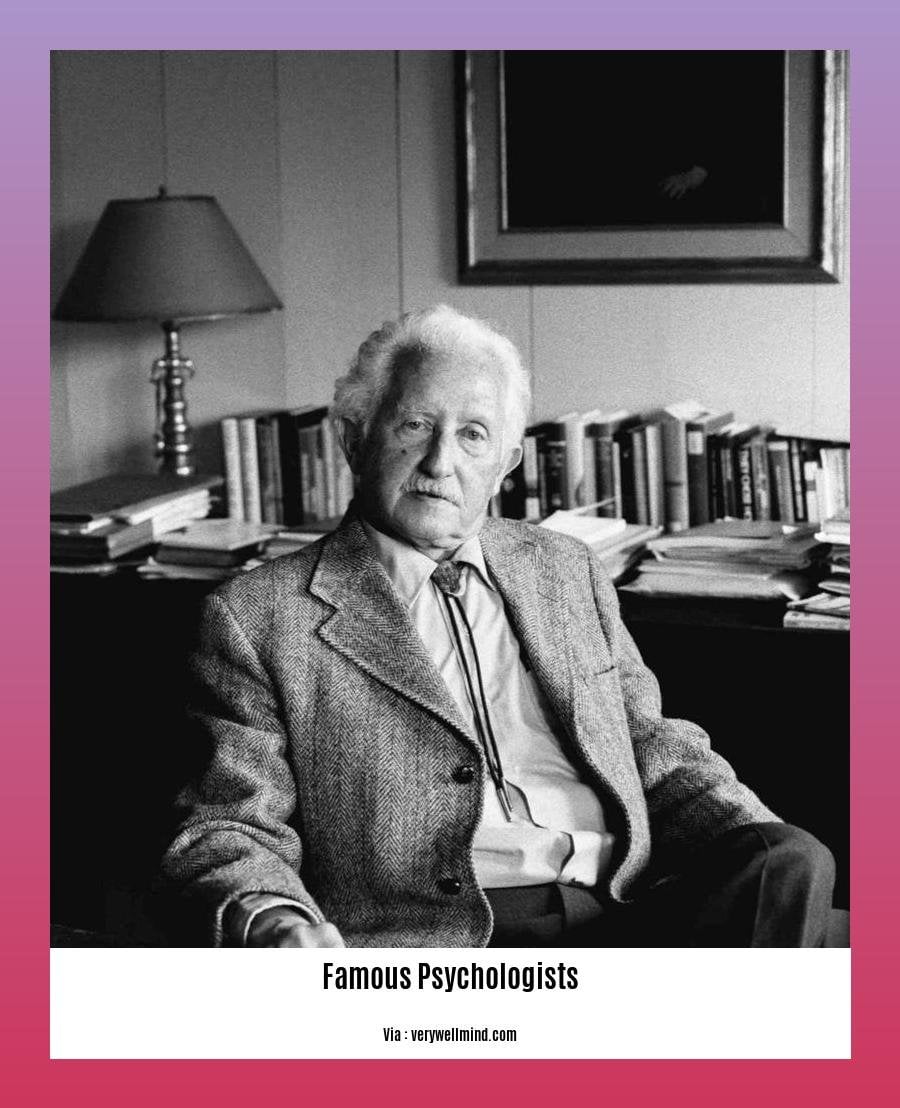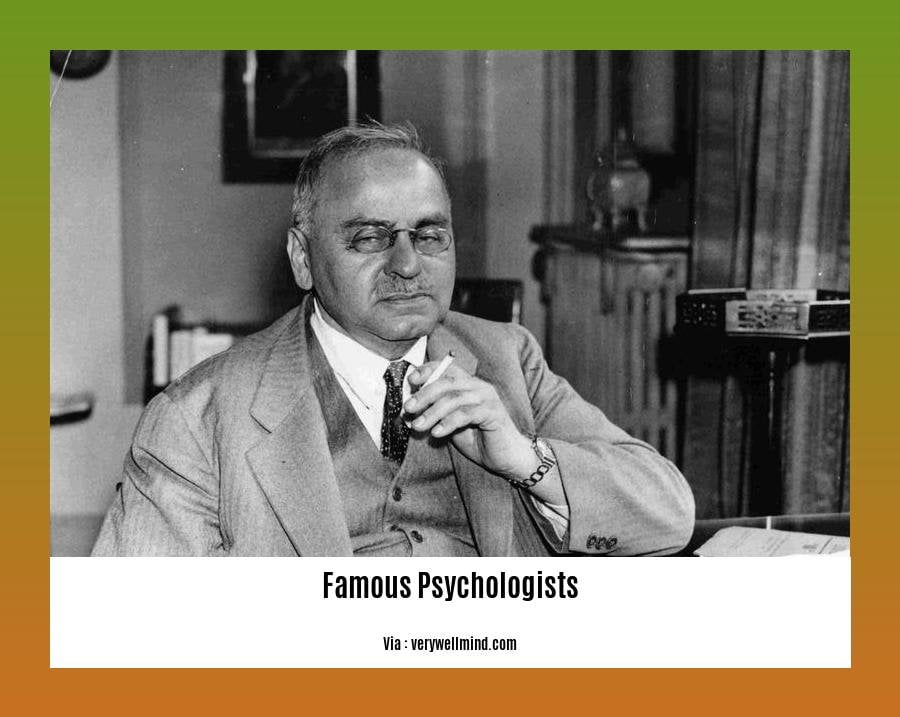Embark on an enthralling journey into the minds of renowned psychologists as we present “[Interviews with Famous Psychologists: Exploring the Minds of Behavioral Science Pioneers]”. Join us as we delve into the wisdom and insights of luminaries who have shaped our understanding of the human psyche. Prepare to enter the realm where motivation, cognition, and behavior intertwine, revealing the intricacies of our thoughts and actions.
Key Takeaways:
- Sigmund Freud: Developed psychoanalysis and introduced concepts like the id, ego, and superego, unconscious mind, and repression.
- B. F. Skinner: Founded behaviorism and emphasized operant conditioning, shaping behaviors through rewards and punishments.
- Wilhelm Wundt: Established structuralism and used introspection to study the structure of the mind.
- William James: Proposed functionalism, focusing on the practical applications of psychology and radical empiricism.
- Alfred Adler: Introduced the inferiority complex and stressed the importance of social belonging and individual psychology.
Famous Psychologists

Throughout history, famous psychologists have dedicated their lives to unraveling the mysteries of the human mind. Their groundbreaking research and theories have transformed our understanding of behavior, cognition, and emotions.
Sigmund Freud:
The father of psychoanalysis, Freud revolutionized the field with his exploration of the unconscious mind and its influence on behavior. His theories on defense mechanisms, such as repression and projection, continue to shape therapeutic practices today.
Carl Jung:
Jung expanded on Freud’s work, introducing the concept of the collective unconscious and archetypes. His focus on individuation and self-discovery has had a profound impact on psychology and personal growth.
B.F. Skinner:
A pioneer of behaviorism, Skinner believed that behavior is primarily shaped by environmental factors. His theory of operant conditioning, based on the principles of reinforcement and punishment, has had widespread applications in training and education.
Wilhelm Wundt:
Known as the “father of experimental psychology,” Wundt used scientific methods to study the mind. His research on perception and reaction time laid the foundation for the development of cognitive psychology.
William James:
A key figure in functionalism, James emphasized the importance of studying consciousness as it relates to practical functions in daily life. His theory of pragmatism has influenced fields ranging from philosophy to education.
Alfred Adler:
Adler’s individual psychology focused on the role of social factors in shaping personality. He believed that feelings of inferiority drive individuals to strive for superiority and belonging.
Impact of Famous Psychologists:
The contributions of these famous psychologists have had a profound impact on various aspects of human life:
- Clinical Psychology: They developed therapeutic techniques that have revolutionized the treatment of mental health conditions.
- Educational Psychology: Their research on learning and motivation has improved teaching methods and student outcomes.
- Social Psychology: They have helped us understand group dynamics, prejudice, and the influence of social norms on behavior.
Legacy and Contemporary Research:
While the theories of these famous psychologists have stood the test of time, contemporary research continues to build upon their foundations. Advances in neuroscience and positive psychology are shedding new light on the complexity of the human mind.
Explore the history of psychology to understand how the field has evolved over centuries, uncovering the fascinating journey of scientific inquiry into the human mind. Dive into the schools of thought in psychology to discover the diverse perspectives and approaches that have shaped our understanding of mental processes and behaviors. Delve into the major theories in psychology to grasp the foundational concepts and principles that underpin psychological research and practice.
Wilhelm Wundt and Experimental Psychology

When we talk about experimental psychology, we can’t help but mention the name Wilhelm Wundt, a pioneer in the field who transformed psychology from a speculative discipline to a scientific one.
In 1879, Wundt established the first laboratory dedicated to experimental psychology at the University of Leipzig. This marked the birth of modern psychology as a separate scientific discipline.
Wundt’s innovative research methods, such as introspection and reaction time experiments, provided a systematic and objective approach to studying the human mind. His work laid the groundwork for many of the experimental methods still used in psychology today.
Key Takeaways:
- Wilhelm Wundt is widely recognized as the “father of experimental psychology.”
- He established the first laboratory dedicated to experimental psychology in 1879.
- Wundt’s research methods, including introspection and reaction time experiments, provided a scientific approach to studying the mind.
- His work paved the way for the development of behaviorism and many of the experimental methods used in psychology today.
Citation
B.F. Skinner and Operant Conditioning
Key Takeaways:
- B.F. Skinner developed operant conditioning, a theory that focuses on the influence of consequences on behavior.
- Operant conditioning uses a three-term contingency: antecedent, behavior, and consequence.
- Reinforcement, either positive or negative, encourages desired behaviors, while punishment discourages undesirable behaviors.
- Operant conditioning has applications in education, classroom management, and behavior modification.
The Experiments of B.F. Skinner:
To understand operant conditioning, let’s look at B.F. Skinner’s famous experiment using a “Skinner box.” In this box, a rat could press a lever to receive a food pellet.
- Antecedent: The rat is hungry.
- Behavior: The rat presses the lever.
- Consequence: The rat receives a food pellet (positive reinforcement).
By manipulating the consequences (food pellets), Skinner showed that he could control the rat’s behavior, increasing or decreasing the frequency of lever pressing.
Applications of Operant Conditioning:
Operant conditioning has wide-ranging applications, including:
- Education: Teachers can use positive reinforcement to encourage students to participate in class, complete assignments, and behave appropriately.
- Classroom Management: By rewarding desired behaviors and punishing disruptive ones, teachers can create a positive learning environment.
- Behavior Modification: Therapists can use operant conditioning techniques to help clients change problematic behaviors, such as smoking or drug use.
Remember:
Operant conditioning is a powerful tool for shaping behavior by using consequences. By understanding the principles of operant conditioning, you can effectively influence the actions of others and achieve desired outcomes.
Citation:
Operant Conditioning In Psychology: B.F. Skinner Theory
Abraham Maslow and the Hierarchy of Needs
Defining Human Motivation
Abraham Maslow, a renowned psychologist, developed the Hierarchy of Needs, a theory that categorizes human needs into a hierarchical structure. According to Maslow, individuals must satisfy lower-level needs before progressing to higher-level needs.
Maslow’s Hierarchy of Needs (from bottom to top):
- Physiological needs: Fundamental requirements for survival, such as food, water, and shelter.
- Safety needs: Security and protection from harm, such as stable housing and healthcare.
- Belongingness and love needs: Social connections, relationships, and a sense of community.
- Esteem needs: Self-respect, confidence, and a sense of accomplishment.
- Self-actualization needs: Fulfillment of one’s potential, creativity, and personal growth.
Maslow’s hierarchy suggests that once essential needs are met, individuals can focus on higher-level needs that contribute to well-being and personal development. This theory has influenced various fields, including psychology, management, and education, helping to understand human motivation and fulfillment.
Key Takeaways:
- Hierarchy of needs: Human needs are arranged in a hierarchical structure, with lower-level needs needing to be met before higher-level needs can be pursued.
- Maslow’s theory: Abraham Maslow’s Hierarchy of Needs postulates that individuals must satisfy basic survival needs before moving on to higher-level needs related to personal growth and self-actualization.
- Applications: The theory has practical implications in various fields, such as psychology, where it informs therapeutic interventions, and management, where it guides employee motivation strategies.
Citation:
– Cherry, K. (2023, February 28). Abraham Maslow: Life and Contributions to Psychology. Verywell Mind.
FAQ
Q1: Who is considered the “father of psychology”?
Q2: What is the name of the theory developed by Abraham Maslow that outlines a hierarchy of human needs?
Q3: Which psychologist is known for their work on psychoanalysis and the concept of the unconscious mind?
Q4: Who conducted experiments in a “Skinner’s box” that shaped the understanding of operant conditioning in behaviorism?
Q5: Which psychologist established the first laboratory dedicated to psychology in 1879?
- Uncovering Surprising Parallels: England Size Compared to US States - April 19, 2025
- Old Mexico Map: Border Shifts 1821-1857 - April 19, 2025
- Blindness Doesn’t Limit: Popular Blind People’s Inspiring Success Stories - April 19, 2025
















